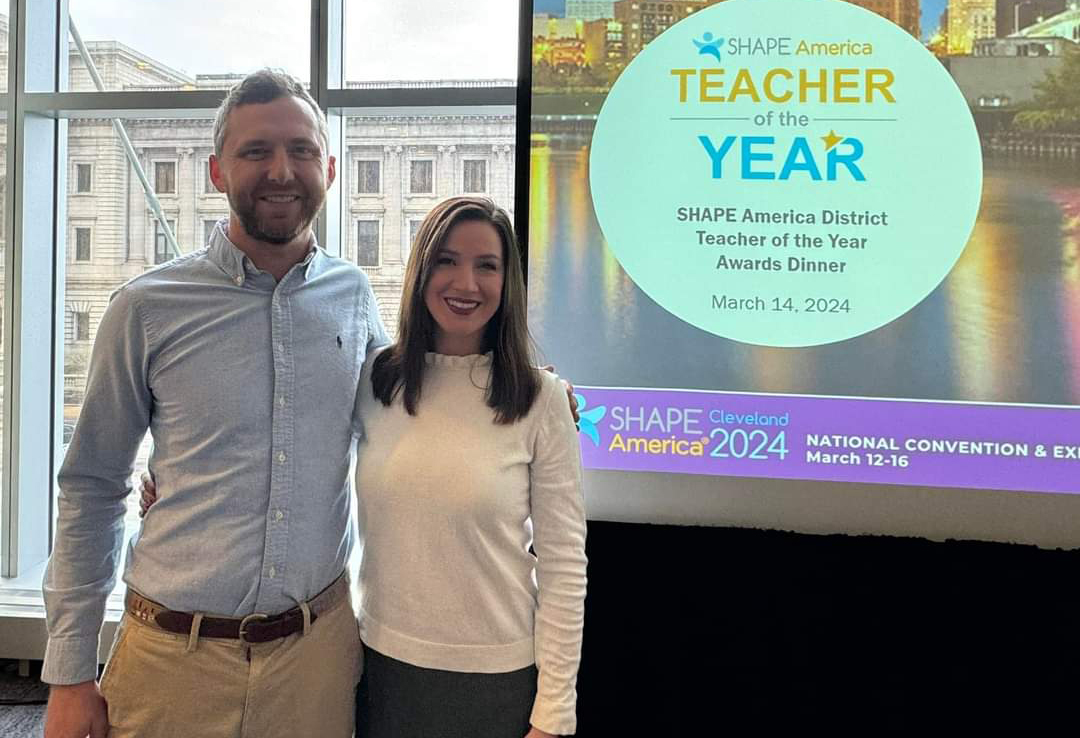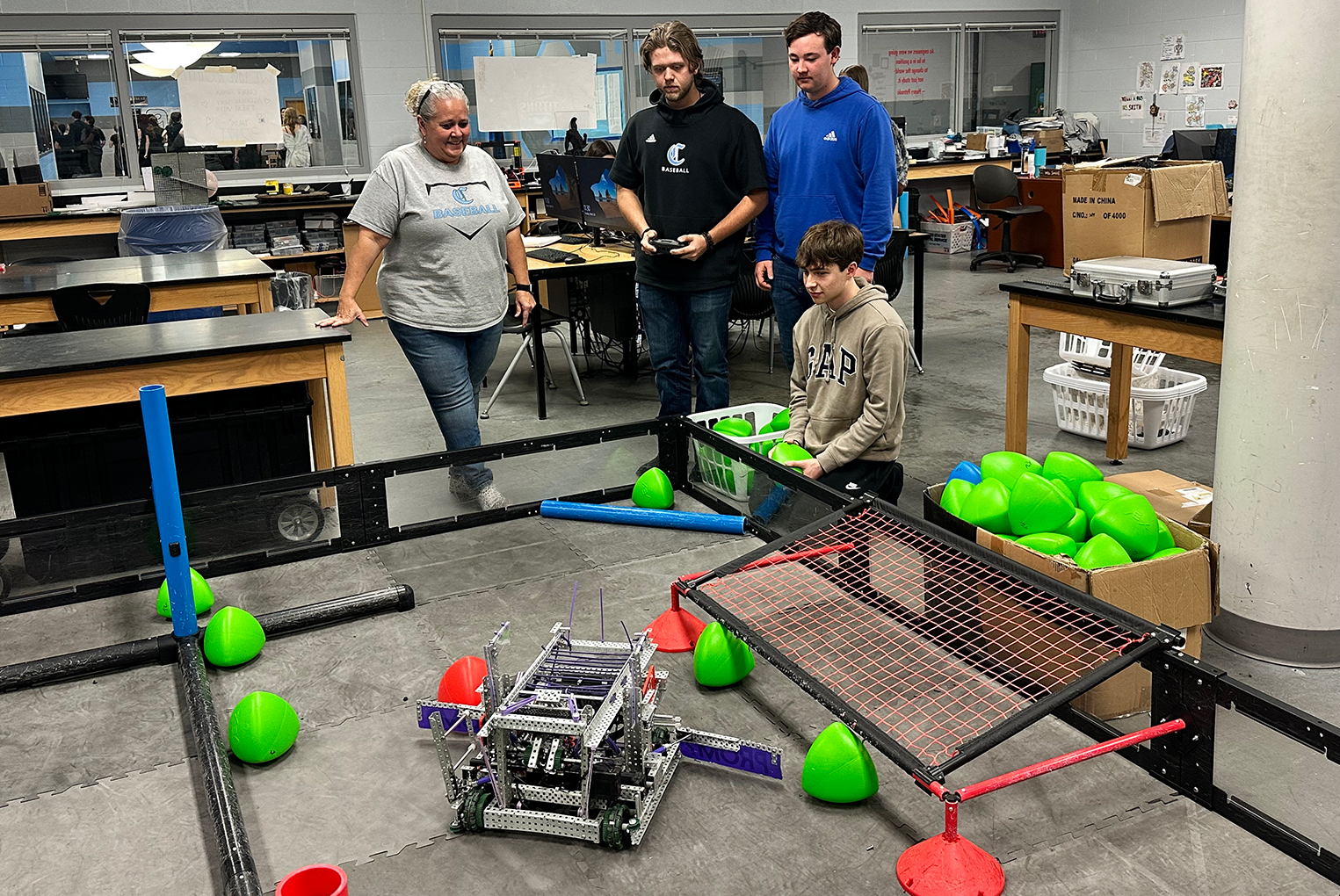
Jack McElroy has been training Career and Technical Education (CTE) teacher in Kentucky since 1969. Photo by Tim Thornberry, Feb. 12, 2015
Chances are, if you’re a Career and Technical Education (CTE) teacher in Kentucky, you were trained under the guidance of Jack McElroy.
“Dr. Jack” as he is known, began his career of teaching Kentucky teachers in 1969 at the University of Kentucky (UK), but it was his involvement in trade skills as a teenagers in Erie, Pa., that set the stage for a lifelong involvement in CTE.
McElroy’s father was a machinist in an area where manufacturing was prevalent at the time and it was through a conversation he had with him that led McElroy to the local tech high school.
He entered into an apprenticeship after graduation. But it was on the advice of a friend who taught a machine shop class that would send him into the teaching profession.
“I would help him out at the night class he taught and my friend said I was a natural at working with the students and said I should be a teacher,” said McElroy.
He enrolled at Western Michigan University which offered a teacher education program in industrial education. After graduation he taught a high school machine tool technology program for six years before taking a teaching position at Ferris State College. From there, McElroy applied for a teacher education position in the Department of Vocational Education at UK where he would spend the bulk of his career.
Today, Dr. Jack is known across the state for his contributions to Kentucky CTE and the teachers who have made a career for themselves in the education profession. But he still says that his proudest accomplishment education-wise was receiving his apprenticeship certificate.
When did you first become interested in the CTE field?
“Upon entering high school, I had the choice of going to a tech school, a college-prep school or one of four general high schools in the area. And within those schools I had the opportunity to choose what area I wanted to study. I chose tool and die, as it was called then, because my dad said I could make more money in that field. That’s really where I got my CTE niche.”
Talk about your career at UK.
I came to UK in 1969. In those days there were four of us who traveled around the state to work with teachers in the state vocational school system, consisting of 34 secondary schools and 14 postsecondary facilities; what would become known as Kentucky Tech. While working at UK, I received my doctorate from the University of Cincinnati in 1974. I continued to work at UK until I retired from there in 2001.
Could you give a brief history about NTI?
In 1981, the New Teacher Institute (NTI) began. It was set up under the director of the state Superintendent of Public Education. When it began, NTI was known as (Methods of Instruction) MOI. We put together a set of credentials including four years of occupational experience and a certain amount of college hours that each CTE teacher had to complete. I first served as the coordinator in 1983 and would serve in that capacity through a rotational basis with other NTI teacher educators many times over the years. However, I have been the only director since 2008. After my retirement from UK, I formally came to the Office of Career and Technical Education to continue my work with NTI. I initially planned to stay for two years. That has turned into more than 14 years!
Has working with “skills trades” people who have come over to the teaching profession been a challenge? Are there some of the advantages CTE teachers have over the regular classroom teacher?
“Not really a challenge, and I think it’s because of two things. First, these teachers have an advantage over other traditionally trained educators in that they have been trained in these skilled areas with many having worked in those areas throughout their careers. I know this first hand because when I began my teaching career, having been through an apprenticeship proved to be so beneficial to me in the classroom. Secondly, I think it’s important to remember that the vast majority of these students have chosen to be in these specific classes and they have a heightened interest in what they are doing. This fact alone makes the case for bringing back the idea of tech high schools.
How important do you think CTE is to the overall educational outlook for students today?
“I think it is very important because of the need we have in our workforce for those trained in a variety of occupational skills. Not all students want or need to go to a four-year college. There are other postsecondary options for them that often lead to better paying jobs with little or no student debt. But those in the educational sector must come to realize that either path a student chooses is just as valuable as the other. Just because I have a doctorate doesn’t mean my educational endeavors are better than the person trained to work in the advanced manufacturing sector, or those who are plumbers, electricians and automotive technicians, for instance. We need their knowledge and services just as much and even more than what I do. I have the upmost respect for our skilled trade professional and the sooner the educational community recognizes that, the better we will all be.”
CTE has a spotlight today we haven’t seen before. What needs to happen to make CTE better for its students and teachers?
“Students need to be in the CTE classes longer than an hour each day. Because I attended a tech high school, I was able to complete a year and a half of my apprenticeship before I graduated from high school. It’s hard to get the all the education they need by going one hour a day and I think as soon as the folks who make the decisions on such things realize how important this could be to our students and our communities, the better off we all will be. I also think that, as good as our tech teachers are the overall quality of teaching and student achievement would improve if teacher salaries would improve. In addition to better pay, our teachers also need more opportunities for in-service training to reinforce teaching techniques that provide quality results for learning.”
Any plans for the future?
“My wife is ready for me to retire, again and I guess that is coming. But there is so much to do. CTE has some very positive attention right now and I hope it never goes away. I think it is critical to understand the importance of CTE not only for the wellbeing of our educational system but for our country as a whole. We can learn a lesson from the old days when of the tech high schools that were looked upon as favorably as the college prep schools.”
As you enter this time in your career, is there anything that stands out which you will always remember?
“I will always take with me within my heart and soul, a personal satisfaction which I have been given from the thousands of teachers I have shared my life with; a kind of satisfaction that a teacher can only receive from another teacher.”



A great article. Thanks to Dr McElory for his work in CTE. I am trained as a Vocational Agriculture teacher. My daughter is finishing her Associates Degree in Applied Technology (Automotive Tech) this summer. She has interest in teaching. Any advice from Dr. McElory on what additional training she should consider?
Thanks
Jeff Brown